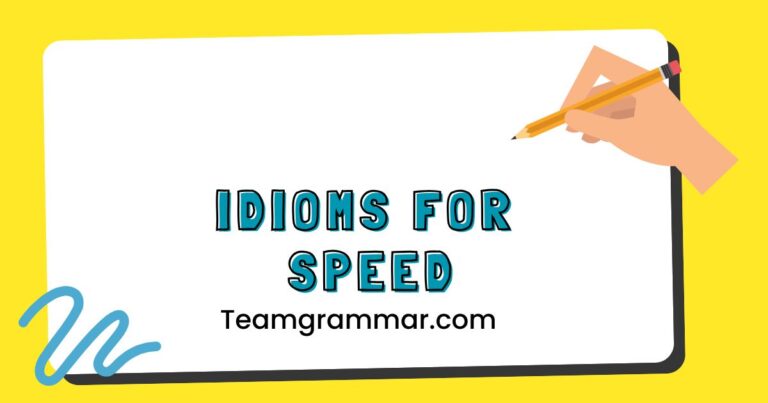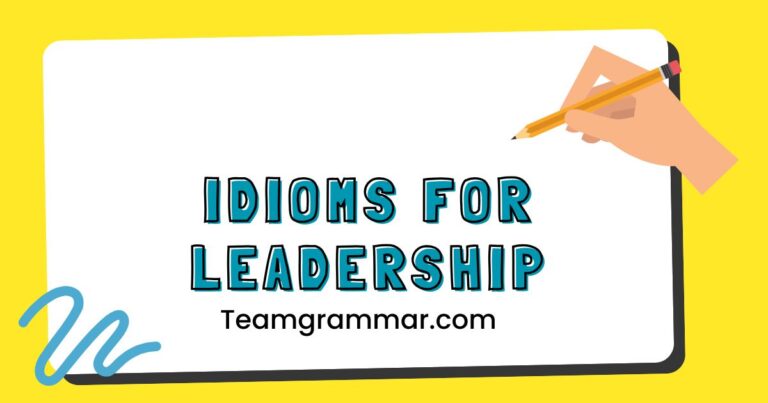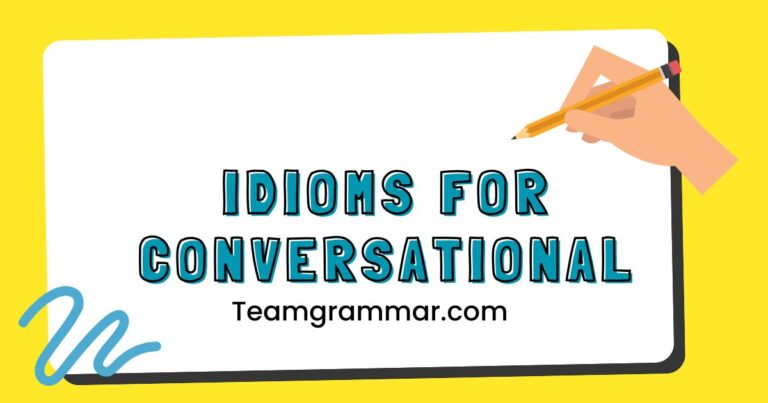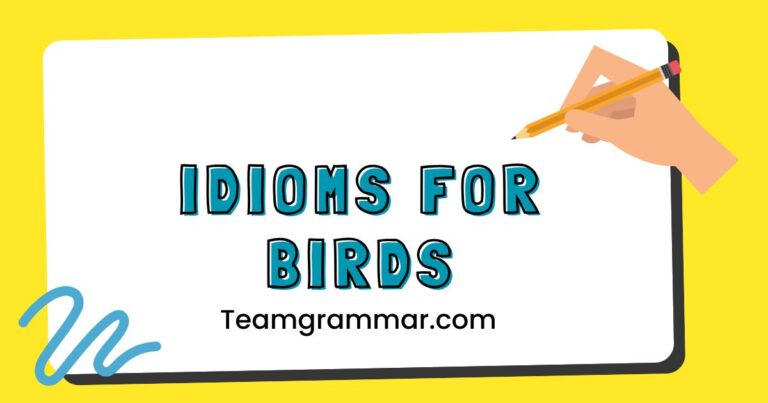43 Idioms for Best Friend: Expressing Closeness in English
Understanding idioms related to friendship is crucial for mastering the nuances of the English language. These expressions add color and depth to conversations, allowing us to convey emotions and relationships in a more vivid and relatable way.
This article delves into a variety of idioms used to describe best friends and close relationships. Whether you’re an English language learner or a native speaker looking to expand your vocabulary, this guide will provide you with the knowledge and practice you need to confidently use these idioms in everyday conversations.
This article is perfect for ESL/EFL students, educators, writers, and anyone interested in improving their English communication skills. By exploring these idioms, you’ll gain a deeper appreciation for the richness and expressiveness of the English language, enabling you to connect with others on a more personal and meaningful level.
Table of Contents
- Introduction
- Definition of Idioms for Best Friend
- Structural Breakdown of Friendship Idioms
- Types and Categories of Friendship Idioms
- Examples of Idioms for Best Friend
- Usage Rules for Friendship Idioms
- Common Mistakes with Friendship Idioms
- Practice Exercises
- Advanced Topics in Friendship Idioms
- Frequently Asked Questions (FAQ)
- Conclusion
Definition of Idioms for Best Friend
An idiom is a phrase or expression whose meaning cannot be understood from the ordinary meanings of the words it contains. It’s a figurative expression that has a meaning different from the literal interpretation of its individual elements.
Idioms add color, depth, and expressiveness to the English language, making communication more engaging and relatable. When referring to a “best friend,” idioms can capture the unique bond, loyalty, and shared experiences that define such a close relationship.
Idioms related to best friends typically fall into the category of descriptive or relational idioms. These expressions often highlight the qualities and characteristics that make a friendship special, such as unwavering support, deep understanding, and shared history.
Understanding and using these idioms correctly can significantly enhance your ability to communicate effectively about friendship in English.
The function of idioms for best friends is to express the depth and complexity of the relationship in a concise and evocative way. They allow speakers to convey emotions and sentiments that might be difficult to articulate using literal language alone.
For example, saying someone is “a shoulder to cry on” is much more impactful than simply saying they are supportive. These idioms are context-dependent, and their meanings can vary slightly depending on the specific situation and cultural understanding.
Structural Breakdown of Friendship Idioms
Friendship idioms, like other idioms, don’t follow standard grammatical rules in terms of literal meaning. Their structure is fixed, meaning you can’t change the words or word order without altering or destroying the idiom’s meaning.
These idioms often involve metaphors, similes, and other figures of speech that create a vivid image or feeling.
The structural elements typically include a combination of nouns, verbs, adjectives, and prepositions. The specific arrangement of these elements is crucial for maintaining the idiom’s intended meaning.
For example, the idiom “thick as thieves” uses a simile to compare the closeness of friends to the secretive nature of thieves. Changing this structure to “thieves as thick” would not convey the same meaning and would not be recognized as an idiom.
Understanding the structural patterns of these idioms involves recognizing that they function as single units of meaning, even though they are composed of multiple words. The individual words contribute to the overall figurative meaning, but they cannot be interpreted literally.
The context in which the idiom is used provides further clues to its intended meaning and helps listeners or readers understand the speaker’s or writer’s message.
Types and Categories of Friendship Idioms
Friendship idioms can be categorized based on the specific aspect of friendship they emphasize. Here are some common categories:
Idioms Emphasizing Loyalty
These idioms highlight the unwavering support and commitment that characterize a best friend. They convey the idea that a true friend will always be there, through thick and thin.
Idioms Emphasizing Support
These idioms focus on the emotional and practical assistance that friends provide to each other. They describe how friends offer comfort, encouragement, and help during challenging times.
Idioms Emphasizing Closeness and Intimacy
These idioms capture the deep emotional connection and understanding that exists between best friends. They often describe a sense of familiarity and comfort that allows friends to be themselves around each other.
Idioms Emphasizing Shared Experiences
These idioms highlight the importance of shared memories and history in building a strong friendship. They describe how friends create lasting bonds through shared adventures, challenges, and milestones.
Idioms Emphasizing Understanding
These idioms focus on the deep empathy and understanding that best friends have for each other. They describe how friends can anticipate each other’s needs and provide support without being asked.
Examples of Idioms for Best Friend
Here are some examples of idioms for best friends, categorized by the aspects of friendship they emphasize:
Examples of Loyalty Idioms
The following table provides examples of idioms that emphasize the loyalty aspect of friendship. Each idiom is accompanied by a definition and an example sentence to illustrate its usage.
| Idiom | Definition | Example Sentence |
|---|---|---|
| Through thick and thin | In good times and bad times; during both prosperity and adversity. | We’ve been friends since kindergarten, and we’ve stuck together through thick and thin. |
| Ride or die | Extremely loyal and willing to do anything for someone. | She’s my ride or die; I know I can always count on her. |
| Stand by someone | To support or defend someone, especially when they are facing difficulties. | No matter what happens, I will always stand by my best friend. |
| Have someone’s back | To support or protect someone. | Don’t worry, I’ve got your back. I’ll help you with whatever you need. |
| Be there for someone | To be available to support or help someone. | I know I can always be there for my best friend when she needs me. |
| A friend in need is a friend indeed | A true friend is someone who helps you when you are in trouble. | When I lost my job, she was the first to offer help. A friend in need is a friend indeed. |
| Stick up for someone | To defend or support someone who is being criticized or attacked. | He always sticks up for me when people are being mean. |
| Be in someone’s corner | To support or defend someone. | I’ll always be in your corner, cheering you on. |
| Till the end of the line | Until the very end; forever. | We’re friends till the end of the line, no matter what. |
| To the bitter end | To continue supporting someone or something until the very end, even if it is unpleasant or difficult. | He supported his friend to the bitter end, despite all the criticism. |
| Go to bat for someone | To support or defend someone. | I will always go to bat for my best friend because she is always there for me. |
| As true as steel | Extremely loyal and reliable. | My best friend is as true as steel; I can always count on her. |
| A loyal friend | Someone who is always there for you and never betrays you. | She is a loyal friend, always standing by my side. |
| Through fire and water | Through any danger or difficulty. | We’ve been through fire and water together, and our friendship has only grown stronger. |
| Defend to the death | To protect someone with your life. | I would defend my best friend to the death if necessary. |
| Always there | Consistently available for support. | She is always there for me, no matter what. |
| Unwavering support | Consistent and steadfast support. | I appreciate her unwavering support through all my challenges. |
| In solidarity | United in support or agreement. | We stand in solidarity with our best friend during this difficult time. |
| A constant ally | Someone who is always on your side. | She is a constant ally, always ready to help me fight my battles. |
| Never wavering | Never losing resolve or support. | Her support is never wavering, even when things get tough. |
Examples of Support Idioms
The following table provides examples of idioms that emphasize the support aspect of friendship. Each idiom is accompanied by a definition and an example sentence to illustrate its usage.
| Idiom | Definition | Example Sentence |
|---|---|---|
| A shoulder to cry on | Someone who is willing to listen to your problems and offer comfort. | Whenever I’m feeling down, she’s always a shoulder to cry on. |
| Lend an ear | To listen to someone with sympathy. | I just needed someone to lend an ear and listen to my problems. |
| Pick someone up | To cheer someone up; to improve someone’s mood. | I tried to pick her up after she failed her exam. |
| Give moral support | To provide encouragement and emotional support. | I’m going to the audition to give my friend moral support. |
| Be a crutch | To provide support or assistance to someone who is weak or dependent. | He’s been a crutch for me ever since my accident. |
| Lift someone’s spirits | To make someone feel happier or more cheerful. | The flowers lifted my spirits after a tough day. |
| A ray of sunshine | Someone who brings happiness and positivity to others. | She’s a ray of sunshine, always smiling and making everyone feel better. |
| Boost someone’s confidence | To help someone feel more confident. | Her encouragement really boosted my confidence before the presentation. |
| Be a pillar of strength | To be a strong source of support for someone. | She was a pillar of strength for her family during the crisis. |
| Offer a helping hand | To provide assistance or support. | He always offers a helping hand to those in need. |
| Provide comfort | To give solace and ease someone’s distress. | She provided comfort when I was going through a difficult time. |
| Emotional anchor | Someone who provides stability and support. | He is my emotional anchor, always keeping me grounded. |
| Support system | A network of people who provide help and encouragement. | My friends are my support system, helping me through tough times. |
| A listening ear | Someone who is willing to listen to your problems. | She is always there with a listening ear when I need to talk. |
| Offer encouragement | To provide support and motivation. | They always offer encouragement to pursue my dreams. |
| Cheerleader | Someone who enthusiastically supports and encourages others. | She is my biggest cheerleader, always believing in me. |
| Motivate and inspire | To encourage and give someone the desire to do something. | They motivate and inspire me to be a better person. |
| Uplift someone | To improve someone’s mood or spirits. | She always knows how to uplift someone when they’re feeling down. |
| Be a source of strength | To provide resilience and support. | He is a source of strength for me in difficult times. |
| Provide reassurance | To give confidence and reduce anxiety. | They provide reassurance when I doubt myself. |
| Nurse someone back to health | To care for someone until they recover from an illness. | She nursed me back to health when I had the flu. |
| Be a rock | To be a strong and dependable support for someone. | He has been a rock for me during this crisis. |
Examples of Closeness Idioms
The following table provides examples of idioms that emphasize the closeness and intimacy aspect of friendship. Each idiom is accompanied by a definition and an example sentence to illustrate its usage.
| Idiom | Definition | Example Sentence |
|---|---|---|
| Thick as thieves | Very close and friendly; sharing secrets and confidences. | They’re thick as thieves; they do everything together. |
| Like two peas in a pod | Very similar and always together. | They’re like two peas in a pod; they have so much in common. |
| Attached at the hip | Very close and always together. | Those two are attached at the hip; you never see one without the other. |
| Bosom buddies | Very close and intimate friends. | They’ve been bosom buddies since childhood. |
| Kindred spirits | People who have similar interests and feelings. | We’re kindred spirits; we understand each other so well. |
| Soulmate | Someone with whom you have a deep and natural affinity. | I consider her my soulmate; we just click. |
| Inseparable | Unable to be separated; always together. | They’ve been inseparable since they met. |
| Close-knit | Having strong relationships with each other. | They have a very close-knit group of friends. |
| Share a special bond | To have a unique and strong connection. | We share a special bond that can never be broken. |
| Connected at the heart | Having a deep emotional connection. | They are connected at the heart and understand each other deeply. |
| Besties | An informal term for best friends. | We’ve been besties since high school. |
| Partners in crime | Friends who often engage in mischievous or adventurous activities together. | They are partners in crime, always getting into trouble together. |
| Two of a kind | Very similar in personality or behavior. | They are two of a kind, always laughing and joking together. |
| See eye to eye | To agree with someone. | We always see eye to eye on important matters. |
| Cut from the same cloth | Having similar qualities or characteristics. | They are cut from the same cloth, both ambitious and hard-working. |
| Like family | So close that they feel like relatives. | They are like family, always there for each other. |
| Womb-mates | A humorous term for close friends, suggesting they are as close as siblings born from the same womb. | We’re practically womb-mates, we’ve known each other so long. |
| BFF (Best Friends Forever) | A common abbreviation for best friends who expect to remain friends for life. | We’re BFFs and always will be. |
| Close to one’s heart | Someone very dear and important. | She is close to my heart, and I cherish our friendship. |
| Gelu twins | Friends who act as twins | They are like Gelu twins, always together and doing the same things. |
| Always there for them | Someone who is constantly available for their friend. | She is always there for them, whenever they need her. |
| Unbreakable bond | A connection that cannot be severed. | They share an unbreakable bond that has lasted for years. |
Examples of Shared Experiences Idioms
The following table provides examples of idioms that emphasize the shared experiences aspect of friendship. Each idiom is accompanied by a definition and an example sentence to illustrate its usage.
| Idiom | Definition | Example Sentence |
|---|---|---|
| Go way back | To have known someone for a long time. | We go way back; we’ve been friends since elementary school. |
| Share history | To have a common past and shared experiences. | We share history; we grew up together in the same neighborhood. |
| Been through a lot together | To have experienced many challenges and difficulties together. | We’ve been through a lot together, which has made our friendship stronger. |
| Have memories to last a lifetime | To have created unforgettable experiences together. | We have memories to last a lifetime from our travels together. |
| Walk down memory lane | To reminisce about past experiences. | We love to walk down memory lane and talk about old times. |
| Old friend | Someone you have known for many years. | He’s an old friend from college. |
| Childhood friend | Someone you have known since you were a child. | She’s my childhood friend, and we’re still close. |
| Shared adventures | Exciting and memorable experiences together. | We’ve had many shared adventures over the years. |
| Common ground | Shared interests or experiences. | We found common ground in our love for music. |
| Bond over something | To form a close relationship through a shared experience. | We bonded over our love for hiking. |
| Through good times and bad | Experiencing both positive and negative events together. | We’ve been friends through good times and bad. |
| Shared journey | A common path or experience. | We’re on a shared journey towards our goals. |
| Collective memories | Memories shared by a group of people. | We have so many collective memories from our school days. |
| Unforgettable moments | Experiences that are cherished and remembered forever. | We’ve had many unforgettable moments together. |
| Past experiences | Events that have happened in the past. | Our past experiences have shaped our friendship. |
| Shared history | Common experiences and events. | Our shared history makes our bond stronger. |
| Relive memories | To remember and enjoy past experiences again. | We love to relive memories from our old trips. |
| A trip down memory lane | Reminiscing about the past. | Talking about our childhood is always a trip down memory lane. |
| A walk down memory lane | Reminiscing about the past. | Looking at old photos is a walk down memory lane. |
| Good old days | A time in the past that is remembered fondly. | We often talk about the good old days in college. |
Examples of Understanding Idioms
The following table provides examples of idioms that emphasize the understanding aspect of friendship. Each idiom is accompanied by a definition and an example sentence to illustrate its usage.
| Idiom | Definition | Example Sentence |
|---|---|---|
| Read someone like a book | To understand someone very well. | I can read my best friend like a book; I know what she’s thinking. |
| Know someone inside and out | To know someone very well, including their thoughts and feelings. | We know each other inside and out after all these years. |
| On the same wavelength | Thinking alike; understanding each other easily. | We’re always on the same wavelength; we understand each other without even speaking. |
| Get each other | To understand each other well. | We just get each other; it’s hard to explain. |
| Understand where someone is coming from | To understand someone’s point of view or perspective. | I understand where she’s coming from, even if I don’t agree with her. |
| Know what makes someone tick | To understand what motivates or drives someone. | I know what makes her tick; she’s very ambitious. |
| Intuitive understanding | Understanding someone without needing to be told. | We have an intuitive understanding of each other’s needs. |
| Deep empathy | The ability to understand and share the feelings of another person. | We share deep empathy for each other’s struggles. |
| Emotional intelligence | The capacity to be aware of, control, and express one’s emotions, and to handle interpersonal relationships judiciously and empathetically. | Her emotional intelligence helps her understand others’ feelings. |
| Sense of understanding | A feeling of comprehension and empathy. | We have a strong sense of understanding between us. |
| Mutual understanding | Understanding shared by two or more people. | We have a mutual understanding of each other’s goals. |
| Empathetic connection | A connection based on understanding and sharing feelings. | We have an empathetic connection that transcends words. |
| Understand implicitly | To understand something without it needing to be explicitly stated. | We understand implicitly what the other is feeling. |
| Know someone’s heart | To deeply understand someone’s emotions and intentions. | I know her heart and understand her true intentions. |
| See things from their perspective | To understand someone’s viewpoint. | I try to see things from their perspective to understand their decisions. |
| Tune into someone’s feelings | To be aware of and understand someone’s emotions. | I can easily tune into her feelings because we’re so close. |
| Read between the lines | To understand the hidden meaning behind words or actions. | I can read between the lines and understand what she’s really saying. |
| Understand the subtext | To understand the implicit meaning. | I understand the subtext of what she’s trying to convey. |
| Get the gist | To understand the main point. | I get the gist of what she’s saying, even if she’s not being explicit. |
| Know someone’s mind | To understand someone’s thoughts and intentions. | I feel like I know her mind; we think so alike. |
Usage Rules for Friendship Idioms
Using idioms correctly requires understanding their specific contexts and nuances. Here are some general rules to follow:
- Context is key: Always consider the situation and the relationship between the speakers when using idioms. Some idioms may be more appropriate for informal conversations than formal settings.
- Word order matters: Idioms have a fixed structure, and changing the word order can alter or destroy their meaning.
- Know the meaning: Make sure you understand the meaning of the idiom before using it. Using an idiom incorrectly can lead to confusion or miscommunication.
- Consider your audience: Be mindful of your audience’s familiarity with English idioms. If you’re speaking to non-native speakers, it may be best to use simpler language to avoid confusion.
- Don’t overuse idioms: While idioms can add color to your language, overuse can make your speech sound unnatural or forced.
Exceptions to these rules are rare, as idioms are fixed expressions. However, some idioms may have slight variations in wording or usage depending on regional dialects or personal preferences.
It’s always a good idea to listen to how native speakers use idioms to get a better sense of their appropriate usage.
Common Mistakes with Friendship Idioms
Here are some common mistakes people make when using idioms about friendship:
| Incorrect | Correct | Explanation |
|---|---|---|
| We’ve known each other through smooth and rough. | We’ve known each other through thick and thin. | The correct idiom is “through thick and thin,” not “smooth and rough.” |
| She’s a bone to cry on. | She’s a shoulder to cry on. | The correct idiom is “a shoulder to cry on,” not “a bone to cry on.” |
| They’re like two apples in a pod. | They’re like two peas in a pod. | The correct idiom is “like two peas in a pod,” not “apples.” |
| We’re attached at the foot. | We’re attached at the hip. | The correct idiom is “attached at the hip,” not “foot.” |
| He has my front. | He has my back. | The correct idiom is “has my back,” not “front.” |
| A fake in need is a fake indeed. | A friend in need is a friend indeed. | The correct idiom is “a friend in need,” not “a fake in need.” |
| They are not seeing shoulder to shoulder. | They are not seeing eye to eye. | The correct idiom is “eye to eye,” not “shoulder to shoulder.” |
| We share background. | We share history. | The correct idiom is “share history,” not “background.” |
| I can understand someone like a magazine. | I can read someone like a book. | The correct idiom is “read someone like a book,” not “magazine.” |
| Be on the same wave. | Be on the same wavelength. | The correct idiom is “wavelength,” not “wave.” |
Practice Exercises
Test your understanding of friendship idioms with these exercises:
Exercise 1: Fill in the Blanks
Fill in the blanks with the correct idiom from the list below.
(List of Idioms: through thick and thin, a shoulder to cry on, like two peas in a pod, attached at the hip, have someone’s back, go way back, on the same wavelength, partners in crime, kindred spirits, a friend in need is a friend indeed)
| Question | Answer |
|---|---|
| 1. We’ve been friends ________; we’ve supported each other through everything. | through thick and thin |
| 2. She’s always ________ whenever I’m feeling down. | a shoulder to cry on |
| 3. They’re ________; they have so much in common and love doing the same things. | like two peas in a pod |
| 4. Those two are ________; you never see one without the other. | attached at the hip |
| 5. Don’t worry, I ________. I’ll always be there to support you. | have someone’s back |
| 6. We ________; we’ve known each other since elementary school. | go way back |
| 7. We’re always ________; we understand each other without even speaking. | on the same wavelength |
| 8. They’re ________, always getting into trouble together. | partners in crime |
| 9. We’re ________; we understand each other so well. | kindred spirits |
| 10. ________; she helped me when I was in trouble. | A friend in need is a friend indeed |
Exercise 2: Multiple Choice
Choose the correct meaning of the idiom in each sentence.
-
They’re thick as thieves.
- They are very close and friendly.
- They are always arguing.
- They are not good friends.
Answer: a
-
He’s been a rock for me during this crisis.
- He’s been very emotional.
- He’s been a strong and dependable support.
- He’s been ignoring me.
Answer: b
-
We see eye to eye on most things.
- We disagree on everything.
- We agree on most things.
- We avoid each other.
Answer: b
Exercise 3: Correct the Mistakes
Identify and correct the mistakes in the following sentences.
-
Incorrect: She’s a arm to cry on.
Correct: She’s a shoulder to cry on.
-
Incorrect: They go back far.
Correct: They go way back.
-
Incorrect: We’re on the same radio.
Correct: We’re on the same wavelength.
Advanced Topics in Friendship Idioms
For advanced learners, consider exploring the cultural and historical origins of friendship idioms. Many idioms have roots in historical events, literature, or folklore.
Understanding these origins can provide deeper insights into the meanings and nuances of the idioms.
Also, investigate how friendship idioms vary across different English-speaking regions. For example, idioms used in the United States may differ from those used in the United Kingdom or Australia.
Pay attention to regional variations in pronunciation, spelling, and usage.
Finally, analyze how idioms are used in literature, film, and other forms of media to convey character relationships and themes. Pay attention to the context in which idioms are used and how they contribute to the overall meaning of the work.
Frequently Asked Questions (FAQ)
What is the difference between an idiom and a proverb?
An idiom is a phrase with a figurative meaning that differs from its literal meaning (e.g., “kick the bucket” means to die). A proverb is a short, popular saying that expresses a general truth or piece of advice (e.g., “a penny saved is a penny earned”).
How can I improve my understanding of idioms?
Read widely, listen to native speakers, and pay attention to the context in which idioms are used. Practice using idioms in your own speech and writing, and don’t be afraid to ask for feedback.
Are idioms universal, or do they vary by culture?
Idioms are culture-specific, and their meanings cannot be directly translated. What might be a common idiom in one culture could be completely meaningless in another.
Can I create my own idioms?
While it’s possible to create new expressions, they won’t be considered idioms unless they gain widespread use and acceptance. Idioms typically evolve over time and become part of a language’s cultural lexicon.
Why is it important to learn idioms?
Learning idioms enhances your understanding of a language’s nuances, improves your communication skills, and allows you to connect with native speakers on a deeper level. Idioms add color and expressiveness to your speech and writing, making you a more effective communicator.
Conclusion
Mastering idioms for best friends is a valuable skill for anyone looking to enhance their English language proficiency. These expressions add depth and color to your conversations, allowing you to express the unique bonds and shared experiences that define close friendships.
By understanding the different types of friendship idioms, practicing their usage, and avoiding common mistakes, you can confidently use these expressions to communicate more effectively and connect with others on a more personal level.







